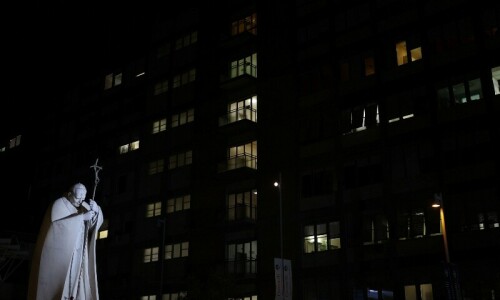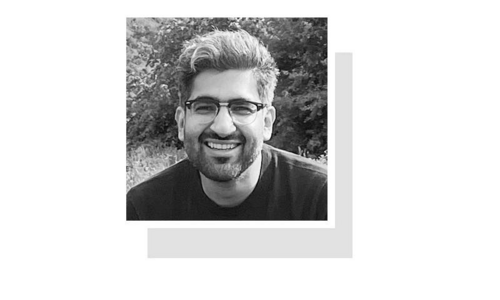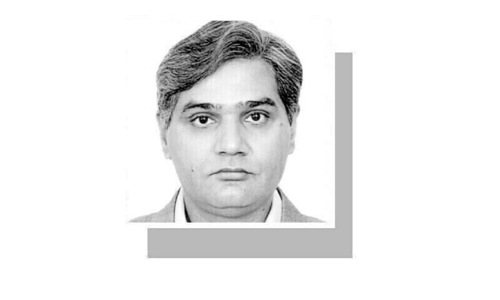
Hindus have been living in Balochistan since time immemorial, and ruled some parts of it too, before the Arab invasion in 712 AD. They still have their own historic places of worship. While one can read scores of books on the injustices and bloodshed the Hindu community in other provinces of Pakistan faced during Partition, writers from Balochistan — including myself — have often boasted of the harmony that did not force Hindus to leave this province. However, Reena Nanda tells otherwise in her book From Quetta to Delhi: A Partition Story.
Nanda’s family originally belonged to Jhang in Punjab, and settled in Quetta in 1897. After briefly delving into Balochistan’s history, Nanda sheds light on the good old days in Quetta, where people of various ethnicities and religious backgrounds coexisted in peace. Unfortunately, like elsewhere in the Subcontinent, Partition drastically transformed the landscape of Quetta’s religious harmony, too.
By and large, Balochistan has been known for its religious plurality. This is why it has housed — and still houses — people of varied faiths. Nanda discusses this religious plurality in view of the fact that her grandfather, Sawan Mal, was agnostic — “a genuine non-believer with no interest in any religion; he did not interfere with his wife’s religious beliefs so long as she did not involve him in them. The result of that was that the family had no fixed religious identity [such as] Arya Samaji or Khalsa Sikhs do, and the children grew up happily with an informal mix of both Hindu and Sikh rituals.”
Like other Hindu and Sikh families in Quetta, Sawan Mal’s Punjabi Hindu household did not have the slightest inkling that they would have to leave for India, even though at the time it was agreed that bureaucrats would be exchanged between the two new countries on the basis of religion. Like many affluent and trader Sikh and Hindu families who owned property, Sawan Mal wanted to serve in the newly created Pakistan by opting to remain in the Civil Service of Pakistan.
Nanda writes that one evening, Sawan Mal, along with the elite of Quetta — Hindus, Parsis, Muslims and Sikhs — was at a grand dinner at the Brown Gymkhana Club to salute the Pakistani flag when, to their shock, a violent mob of Pakhtuns gathered outside. Luckily, Sawan Mal was driven to safety by his Pakhtun driver Mahmud Khan.
It is interesting to note that Pakhtuns are the second largest ethnic group in Balochistan, after the Baloch. The Baloch and Pakhtuns also make up the greater chunk of the population in the provincial capital Quetta. Yet at the time of Partition, unlike elsewhere, there were hardly any Muslim-Hindu riots in Balochistan, which is why Nanda writes that Sawan Mal was stunned by the hostility of the Pakhtun tribals: “It was not a land of fanatic Pirs and Mullahs, and the Pathans [Pakhtuns] were perfunctory namazis and mosque goers.” She adds, “As for the Baloch, they were well known for remembering their religion only at Eid.”
Historically speaking, the Muslim League — led in the erstwhile British Balochistan and the former State of Kalat by lawyer Qazi Mohammad Isa and businessman Mir Nabi Baksh Zehri — did not have any sizeable following pre-independence. As a result, the League narrative did not attain much attention among Balochistan’s Muslims. The ordinary Muslim, including Baloch and Pakhtun, was not interested in the ouster of Hindus and Sikhs from the province. The Pakhtun elite, however, were interested in seizing the non-Muslims’ properties and thriving businesses. Nanda writes, “In Quetta, prosperous Pathans were jealous of the wealthier Hindus and Sikhs who owned businesses and properties worth crores of rupees.”
Nanda’s book is a window into the lives her family led in Jhang, Quetta and Delhi. At the same time, it lets readers delve into the trauma which the family, including the author, have been facing ever since Partition. The stories her mother, Shakunt Nanda, tells play an important role in making this possible.
Shakunt was a bookworm and, despite the social and family restrictions prevalent at the time, given the opportunity to acquire an education by her father, Sawan Mal. Shakunt’s family life fell apart twice; first, when an earthquake struck Quetta in 1935, because of which they had to temporarily move to their ancestral town in Jhang. Next came a greater tragedy when, besieged in their own home in Quetta because of threats from mobs, they left their watan [country] and migrated to Delhi. At least they were fortunate enough to leave by airplane. It is this that compels Nanda to write, “In the anguished, hopeless faces of Palestinians, Syrians, Kurds and Yazidis, I see my grandparents and parents.”
Nanda’s book speaks of a Quetta that one feels simultaneously proud and ashamed of. That a family such as Shakunt’s could embed roots there seems practically unimaginable considering the present times. That they were uprooted forever, and spent the rest of their lives in nostalgia, trauma and homesickness, is heartbreaking. The words of Shakunt’s mother, when she gazed out of the airplane window at the land she was leaving behind, must still be reverberating in Quetta’s air: “Hai mera Kota. Hai, Kota chala gaya” [Oh, my Quetta. Oh, my Quetta is gone]. Nanda states in her book that “the attachment Punjabis have with their mitti, the soil that gave them birth, is like the roots of a grand banyan — not easily pulled out.” But in stating so, she forgets that it is the mitti that has attachment with its people, and not only the Punjabis.
Nanda writes a book that is poignant, yet positive, for she speaks of friendships instead of enmity and of bonds for the future generations of the two countries, instead of divisions. As she says in her concluding remarks, “The best moment to Partition would be to spread narratives of friendships and bonds for future generations of Pakistanis and Indians.”
The reviewer is a member of staff
From Quetta to Delhi: A Partition Story
By Reena Nanda
Bloomsbury, India
ISBN: 978-9386643827
176pp.
Published in Dawn, Books & Authors, March 1st, 2020

















































